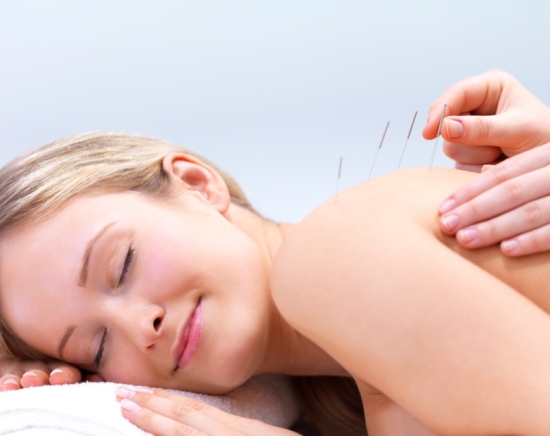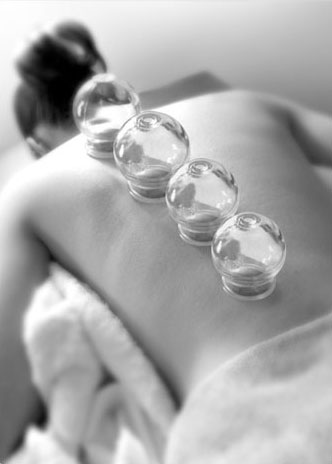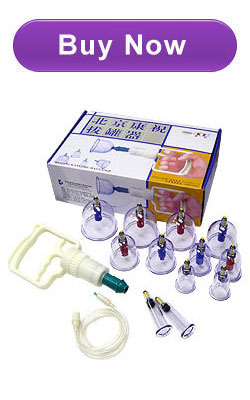


When most people think about pain management, they often think about drugs (prescription or over the counter). They picture themselves going to their doctor’s office and undergoing treatment after treatment.
However, acupuncture is an alternative method of pain management that has been around for ages and that a lot of people have used to get relief.
Despite the fact that it has been around for centuries, most people are not familiar with acupuncture, what it is, and how it works. Therefore, what follows are some questions that you may have and the answers to go along with them.
The best patient is an informed one. So, this is your chance to learn as much as you can about acupuncture so that you can decide if it is the pain management option that is right for you.
What is acupuncture?
Acupuncture itself involves having several very small metal needles inserted into your skin at various points in your body (called meridians).
The goal, according to Chinese medicine, is to get the energy flow within your body (commonly referred to as your “chi” or “qi”) restored so it is balanced as they believe that it is the imbalance that allows certain diseases and conditions to take hold in your body.
Variations with the small needles include introducing other factors, such as heat or electrical current, to get your chi flowing properly.
And, they’re inserted at varying depths, depending on what the practitioner believes is necessary to restore your balance, with their length ranging from 13 to 130 millimeters.
However, some Western doctors view it in a more scientific manner as they believe that this process stimulates your muscles and nerves, thereby getting your body to produce its own natural painkilling endorphins and neurotransmitters. It’s the same process overall, but they hold different beliefs as to why and how it works physiologically.
What is it used for?
According to WebMD, acupuncture is used for a variety of pain related conditions. These include headaches, chronic back pain, fibromyalgia, tennis elbow, menstrual cramps, myofascial pain, osteoarthritis, and carpal tunnel syndrome.
In addition, some people find that this treatment method helps them with temporary pains such as those associated with dental work or birthing labor pains.
It is also considered a viable treatment for asthma and can be used with patients who are rehabilitating from a stroke.
Acupuncture is said to help relieve the nausea and vomiting that is brought about by chemotherapy and some therapists use it to help drug addict’s deal with withdrawal symptoms and/or reduce their chances of relapse.
There is also some belief that clearing the chi flow will increase fertility. Thus, some women may use acupuncture in an effort to get pregnant.
How does it work?
Although every acupuncturist is different, most follow some basic procedural steps. First, they will likely do an assessment to ascertain your overall health (prepare for approximately one hour for a complete evaluation).


They’re going to question you as they want to know what you’re having problems with as this may hold the key to where your chi is most disrupted.
It’s very important to be extremely honest with any questions asked of you so that the acupuncturist can easily pinpoint your problem areas.
Put thought into your answers and bring up any issues you are suffering with, regardless of how minor they may seem to you.
It may be the simplest piece of information that holds the most important clue for the acupuncturist and helps him or her treat you with more accuracy and success.
The physical examination they conduct may consist of visual inspection of the parts of your body that are causing you pain, noting the condition and shape of your tongue (as it may hold many clues in relation to organs such as your heart or liver), appraising the smell of your breath, listening to the sound of your voice, and considering the coloring of your skin. He or she may also check your pulse for strength and rhythm.
Next, they will place the needles at the precise points in your skin that are related with the areas that will get you some much needed pain relief. Generally, this involves using 5-10 needles (contrary to the images that often portray hundreds of needles emanating from a person’s body)and they typically use a plastic tube for guidance.
They are tapped in relatively quickly and, as stated previously, they may be placed at various depths depending on what the practitioner believes is required for the issues that you’re contending with.
If necessary, the needles may need to be manipulated to help you even more. This could involve moving them around or twirling them.
And, as stated above, some practitioners choose to add heat or electrical impulses to them for an added healing effect.
After 10-20 minutes, the needles are removed. Usually the entire session lasts anywhere from 30 minutes to an hour. Some require ongoing visits (like 6-12 or more) to find relief, so you need to be prepared for this possibility if this is what the practitioner feels you need to achieve pain management success.
Does it hurt?
This is probably the biggest concern that people have when it comes to acupuncture. After all, the idea of several needles being placed into your body can be quite disconcerting to say the least.
However, you’ll be pleased to know that most people report absolutely no pain whatsoever in their acupuncture treatments.
You may feel pressure, tingling or a little discomfort, but that is about it. Some people do feel soreness or have some bleeding at the sites where the needles were placed and you may also notice some bruising. This is all completely natural.
Is it safe?
A lot of jurisdictions require that acupuncturists be certified, which helps to ease your mind as you know that your practitioner has been properly trained. And, you may ask to see your acupuncturist’s credentials if you’re concerned about their legitimacy.
Most licensed practitioners discard their needles after every use, but some use disposable needles and sterilize them between uses. Each jurisdiction has different regulations on whether or not this re-use is allowed but, if this is of concern to you, you may choose to stick to an acupuncturist that only uses the disposable options.
There are certain individuals though that should not have acupuncture. According to the Mayo Clinic, if you are pregnant, you don’t want to undergo this alternative treatment as it may induce early labor.
Also, if you are on blood thinners or have a blood disorder, acupuncture may not be the best option for you.
Finally, if you have a pacemaker, you’ll want to avoid any treatments with electrical stimulation. They may cause your pacemaker to malfunction as the electrical current can interfere with its ability to work properly.
Will insurance cover it?
Some insurance policies will pay all or some of the cost of acupuncture, so you’ll need to check with your individual provider to know for sure.
It is possible that all you would have to pay is a deductible, which would certainly ease your financial considerations with this form of treatment.
Also, ask your practitioner if he or she has a fee scale for people that pay out of pocket. You may be able to save yourself some cash just by asking this one simple question.
Do I have to do anything to prepare for the treatment?
Some treatments and tests that you endure medically require you to fast, not wear certain items, skip deodorant, and more. However, with acupuncture there is nothing you need to do in preparation for your treatment session.
Simply show up and be willing to let the practitioner work his or her “magic” to get you as pain free as you can possibly be.
You may be asked to disrobe either partially or fully though so that they can access the proper points with the needles, so that is something to keep in mind when choosing what type of clothing you choose to wear for your acupuncture sessions.
How do I know if it is working?
People have different responses to acupuncture treatments. Some feel relaxed and others feel invigorated and full of energy.
However, generally speaking, the symptoms that originally sent you to the acupuncturist should start to ease up after a couple of weeks.
If they don’t or you aren’t experiencing the relief you expected, discuss it with your provider. It is possible that acupuncture isn’t going to work for you.Or, they may modify their methods to find you more relief.
What can I do to improve the results?
When it comes to dealing with pain, anything you can do that will minimize the sensations and let you live a normal life is a bonus.
With that in mind, there are some lifestyle changes you could make that could potentially make your situation more tolerable.
They include:
Eating a healthy diet. The better fuel you put into your body, the stronger your immune system and the more capable it is to responding to the pain that you feel on an everyday basis.
Choose foods that are high in nutritional value, such as fruits, vegetables, lean proteins and complex carbohydrates.
Drink a lot of water to keep yourself hydrated and limit your consumption of processed foods, alcohol, sugar and white flour products.
Stay active. You don’t have to join a gym and work out for hours at a time to enjoy the benefits of staying physically fit. You can do just as well by taking daily walks to ease your pain and yoga is great too as it isn’t high impact and it focuses on the energy in your body, similar to what acupuncture does.
Keep warm. When you are cold, your body tenses up. So, the more comfortable you can keep the temperature in your environment, the better you’ll likely feel.
This doesn’t mean that you have to move to a warm climate or pay an outrageous heating bill; just make sure you dress appropriately for the conditions and you’ll feel much better in the long run.
How is acupuncture different than acupressure?
Although both methods of healing deal with the same premise (that you need to clear the meridians in your body to allow your chi to flow properly), they are each handled slightly differently.
Acupuncture involves using needles to restore your balance, whereas acupressure involves applying pressure without being as invasive.
When performing acupressure, the practitioner uses his or her hands, elbows, feet or special devices to apply pressure to the specific areas of your body that they deem as blocked. It’s similar to a massage, but they focus more on your chi points than they do trying to loosen your tight muscles.
Some common points they typically focus on include the web between your forefinger and thumb (which affects your large intestines), the skin between your big and second toe (your liver), and the area above your ankle bone (your spleen).
However, there are several hundred, so your treatment could involve any number of areas depending on what issues you’re trying to resolve.
Does acupuncture really work?
This is one question that is repeatedly asked. Does acupuncture actually work or is it some sort of hocus pocus that is more in your mind versus something that is truly beneficial to your body? The best way to answer that question is to consult what research has found.
In one article published by the National Center for Complementary and Alternative Medicine (NCCAM), they spotlight research that was conducted on almost 18,000 people who used acupuncture for various chronic pains (such as back pain, headaches and osteoarthritis).
Their study concluded that “acupuncture is more than just a placebo and a reasonable referral option for patients with chronic pain” as a majority of the participants were afforded some sort of pain relief when undergoing acupuncture therapy.
The British Acupuncture Council concurs with this statement and points to several other studies which have similar findings.
They seem to take the Western approach and indicate that it is the stimulation of the nerves and muscles that help chronic pain sufferers find relief with this method of treatment.
It is also suggested that the more you believe in it, the better your results. Perhaps this is true with most any method of treatment, as researchers have proven time and time again with placebo based trials.
So, if you want to be on the safe side and increase the likelihood that this pain management method will work for you, choose to believe that it will work.
Let your mind direct your body to receive the benefits. What do you have to lose, other than the pain?
How can I find an acupuncturist?
There are several ways to go about locating an acupuncturist to help you with managing your chronic pain. One of the simplest is to ask friends and family who they have used.
That way you’ll be able to talk to someone that has used the particular practitioner and can get a feel for whether or not they are the one for you.
You can also do a search online. One place to start is Acufinder.com. This is an online acupuncture referral site that lists over 30,000 different professionals in over 65 different countries.
Whether you live in the United Kingdom, United States, Austria or Venezuela, they can connect you with a practitioner in your area to help you with your acupuncture needs.
Each professional on their site has a profile in which you can learn about the business as well as the practitioner who operates it.
They share any additional memberships that the person holds as well as their treatment techniques, areas of expertise and styles of acupuncture.
They also give you their physical location, telephone number and a link to their website if you want to learn more.
Putting it all together
Although acupuncture has been around for centuries, it is just now emerging as a valid form of chronic pain management.
The last 10-20 years have brought forth a tremendous amount of research that proves that this is a viable option that should be considered if you live with pain day in and day out and want some relief.
Admittedly, it isn’t for everyone. But, in fairness, the same can be said about any form of treatment. What works for one person does not necessarily work for another.
It is a matter of finding a method of pain management that your body responds to. With that being said, you won’t know if acupuncture is right for you until you try it and give it a chance.
At least be open to it as an alternative. If it works, then you’ve found a way to live a life that doesn’t involve a tremendous amount of pain from sun up until sun down. If it doesn’t, then you move on to finding another alternative that may.
Living in pain is bad enough. But, living in pain when there is a viable solution is just unnecessary.










Original article and pictures take chronicbodypain.net site




















